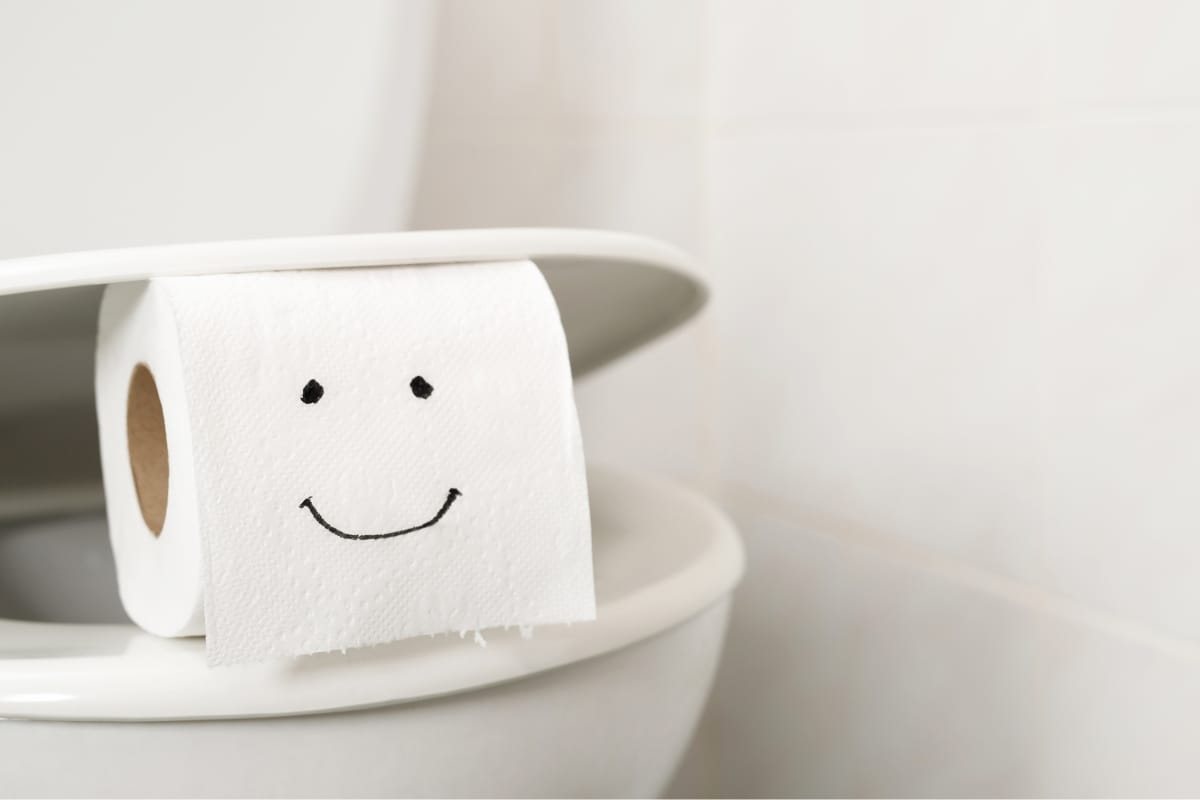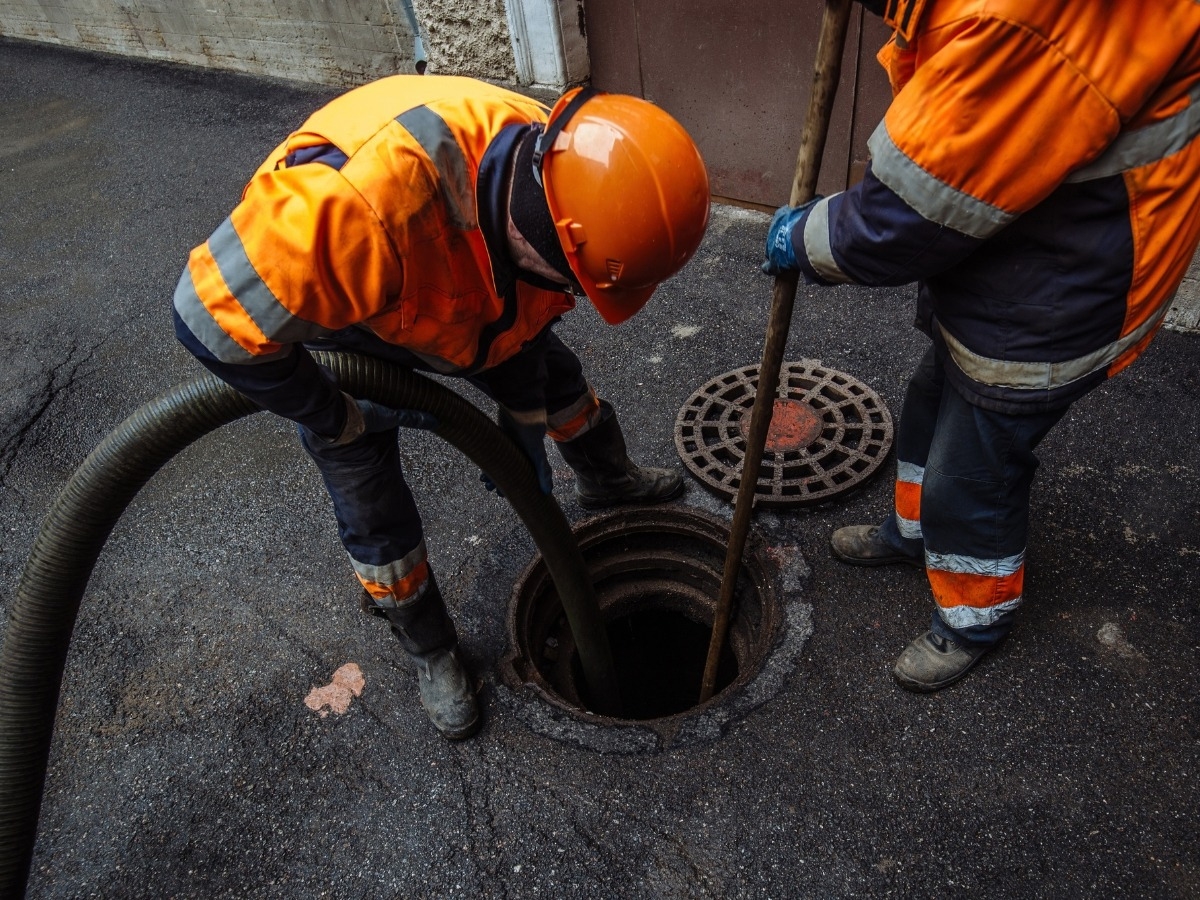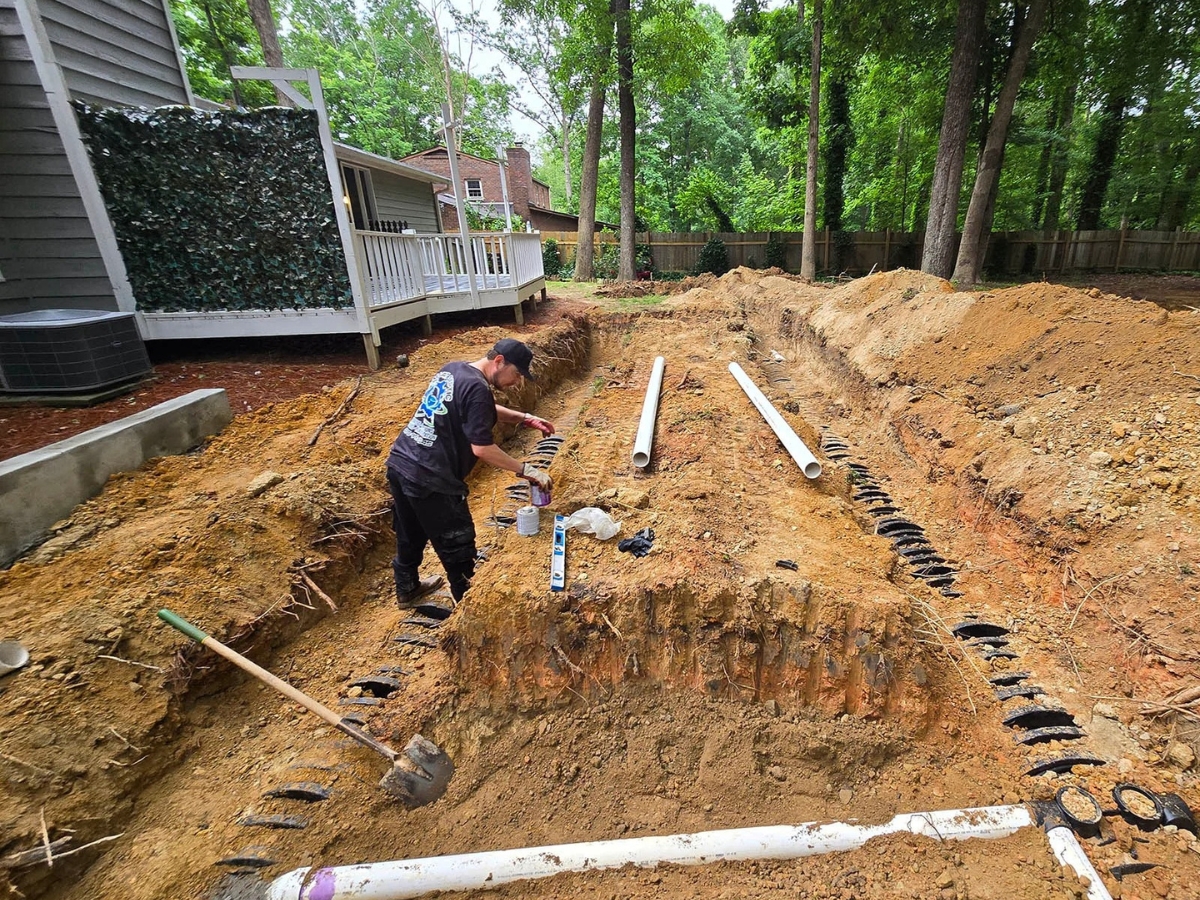Ever wondered why some toilet papers lead to septic system nightmares while others keep things flowing smoothly? You’re not alone.
This post dives into the essentials of finding the best toiletpaper for septic tanks, helping you prevent costly blockages and maintenance issues. You’ll discover the key features that make toiletpaper safe for your system, learn how to test for compatibility, and debunk common myths that could be putting your septic tank at risk.
Whether you’re in need of commercial septic pumping or just looking for septic maintenancetips, you’ll find actionable advice here. By the end, you’ll be equipped with the knowledge for a rapid septic response, ensuring your system stays healthy for years to come.
Choosing the Best Toilet Paper for Septic Tanks: A Simple Guide
Understanding the Importance of Septic-Safe ToiletPaper
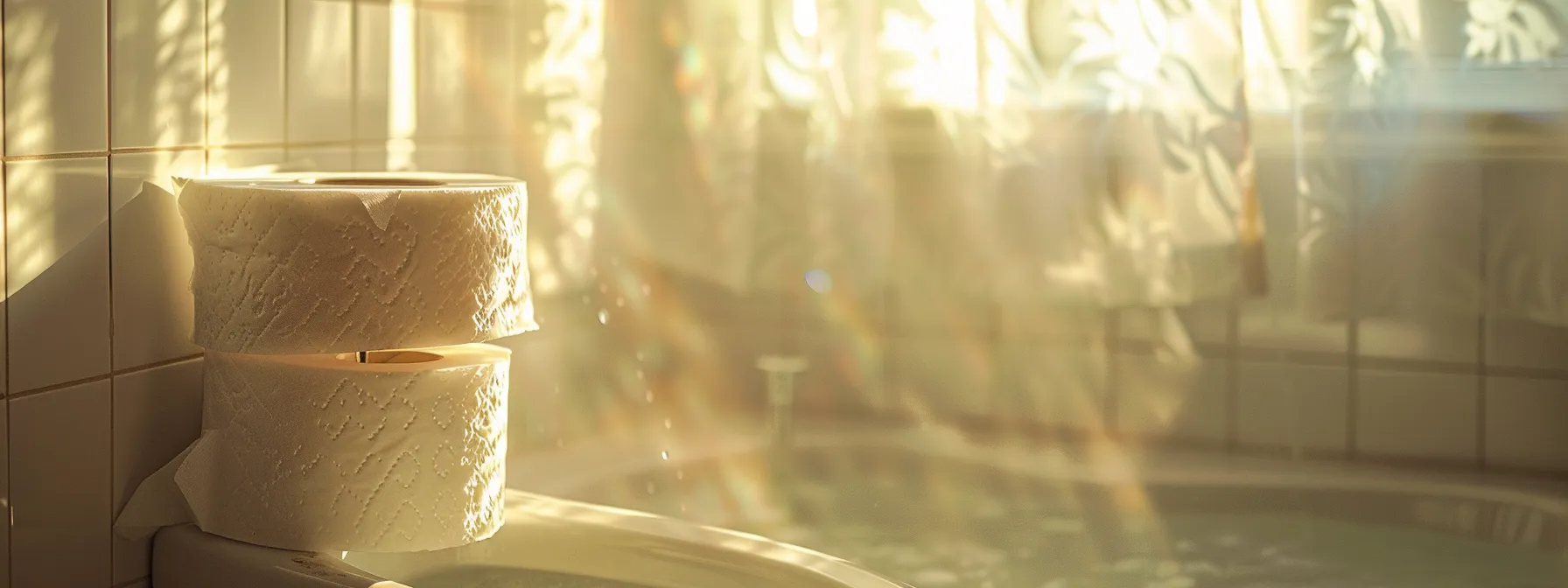
Hey there, you might not think about it much, but the type of toilet paper you use can really impact your septic system. Using the wrong kind can lead to some nasty blockages and hefty septic cleaning costs.
We’re here to give you the breakdown on how toilet paper affects septic systems and the risks of not choosing septic-safe options. Stick around for some eco-friendly septic solutions, septic troubleshooting tips, and septic maintenancetips that’ll keep your system running smoothly.
How ToiletPaper Affects Septic Systems
When you flush your toilet, the paper heads straight to your septic tank, where it needs to break down efficiently to prevent clogs.
If the toiletpaper is too thick or not designed to dissolve quickly, it can accumulate in the tank, leading to blockages that disrupt the delicate balance of your sewage system.
This is why choosing the right toiletpaper is crucial for the health of your septic system and can save you from a world of drain field issues and water contamination problems. Implementing septic maintenancetips and utilizing septic tank services can further ensure the longevity and efficiency of your system.
Imagine your septic tank as a living ecosystem; it relies on bacteria to break down waste, including toilet paper. If you’re using a type that’s too plush or treated with lotions, it can take longer to disintegrate, burdening your system.
This can cause backups in your pipes and even lead to sewage spilling into your yard, which is a messy, smelly problem you definitely want to avoid.
By opting for septic-safe toilet paper and following septic maintenance tips, you’re doing your part to keep the water flowing and your system functioning without a hitch. If needed, our septic tank services can provide support to maintain your system’s efficiency.
Risks of Using Non-Septic-Safe ToiletPaper
Choosing the wrong toiletpaper can spell trouble for your plumbing and septic system. If you’ve ever faced a blockage, you know it’s not just an inconvenience; it can lead to costly repairs.
The best toilet paper for septic systems is one that dissolves quickly, ensuring smooth drainage and preventing the buildup that can choke your system.
So, when you’re shopping, keep an eye out for products labeled as the best toilet paper for septic tanks to keep your plumbing happy. Additionally, following septic maintenancetips can help ensure your system runs smoothly.
Now, let’s say you ignore this advice and go for the ultra-plush, triple-ply rolls. You might enjoy the luxury, but your septic tank won’t. Non-septic-safe toilet paper can resist breakdown, leading to a pile-up in your tank that disrupts the balance of your system.
This can result in backflow issues, where wastewater has nowhere to go but back into your home or onto your lawn: a scenario you want to avoid at all costs. Here are some septic maintenance tips and a septic pumping guide to help you visualize the differences between septic-safe and non-septic-safe products:
| Feature | Septic-Safe Toilet Paper | Non-Septic-Safe Toilet Paper |
|---|---|---|
| Dissolvability | High | Low |
| Thickness | Optimized for septic systems | Often too thick |
| Impact on Plumbing | Minimal | Can cause blockages |
| Long-Term Costs | Lower (fewer issues) | Higher (more maintenance) |
How Septic Systems Process ToiletPaper

So, you’re curious about how your septic system deals with the toilet paper you flush? It’s all about the breakdown of materials in the tank and the crucial role bacteria play in decomposition.
Septic safe toilet paper is designed to disintegrate easily, allowing the natural biodegradation process to occur without a hitch.
This means fewer calls to the plumber and no need for a rapid septic response to fish out non-dissolving items like wet wipes. Up next, we’ll dive into the nitty-gritty of why septic safe options are your tank’s best friend and how septic maintenance tips keep maintenance issues at bay.
Breakdown of Materials in Septic Tanks
Think of your septic tank as a recycling center for your bathroomwaste. The bacteria in the tank are like little workers, breaking down everything you flush, including tissue paper.
For more information, refer to our septic pumping guide. Now, if you’re using a quick-dissolving brand for your septic system, you’re in luck. These products are designed to fall apart fast, making the bacteria‘s job easier and keeping your system clear. If you encounter any issues, our rapid septic response team is ready to assist with septic tank services.
When you choose the right toiletpaper, you’re not just helping your septic tank; you’re also preventing future headaches. Imagine avoiding the hassle of emergency plumbing calls just by selecting a septic-friendly tissue paper.
Implementing septic maintenancetips and following a septic pumping guide is a simple switch that can save you time and money, and here’s a breakdown of how different types of toiletpaper fare in your septic system:
| Type of Toilet Paper | Breakdown Speed | Septic System Impact |
|---|---|---|
| Septic-Safe Brands (e.g., Charmin) | Fast | Positive – Promotes healthy bacteria function |
| Regular Tissue Paper | Moderate | Neutral – May break down adequately with proper use |
| Luxury or Multi-Ply Options | Slow | Negative – Can lead to blockages and maintenance issues |
Role of Bacteria in Decomposition
Think of the bacteria in your septic system as the unsung heroes that tackle waste, turning what you flush into simpler, environmentally friendly components.
These microscopic powerhouses munch through the fiber in your toiletpaper, especially when you choose a brand that’s designed to break down quickly.
This process not only keeps your system flowing but also helps to minimize odors, making your backyard a fresher place to be. For optimal performance, consider our septic maintenancetips and septic pumping guide.
When you opt for septic-safe toiletpaper, you’re giving these bacteria the best chance to do their job effectively.
The right brand can make a world of difference, ensuring that waste is decomposed without a hitch, keeping maintenance issues at bay with our septic maintenancetips, and supporting a healthier septic environment with our septic tank services.
So, next time you’re shopping, remember that your choice has a direct impact on the tiny decomposers working tirelessly in your tank.
Key Features to Look for in Septic-Safe ToiletPaper

When you’re on the hunt for the best toiletpaper for your septic system, there are a few key features to keep in mind. You want something that’s a champ at biodegradability and dissolvability to avoid any nasty blockages in your pipes.
It’s also wise to steer clear of products with harsh chemicals, bleach, or dyes that could mess with your system’s natural paperrecycling process.
Plus, the right ply count matters – too much and you might be dealing with a leak you didn’t sign up for. Up next, we’ll dive into why these factors are crucial for keeping your septic system healthy and your maintenance issues to a minimum. For more septic maintenancetips and our septic pumping guide, visit our website.
Biodegradability and Dissolvability
When you’re picking out toiletpaper, think about how it’ll fare once it hits the water. You want something that’s going to break down quickly, like bambootoiletpaper, which is known for its impressive biodegradability.
This means it won’t just sit in your septic tank but will dissolve, making it easier for your system to handle without causing a backup in your sink or elsewhere in your sanitation setup. Implementing septic maintenancetips can further ensure your system operates smoothly, and for comprehensive care, consider septic tank services.
Ever dealt with the aftermath of a papertowel gone rogue in your pipes? It’s not pretty. Tissue that’s septic-safe is designed to avoid such fiascos.
It’s crafted to disintegrate at just the right speed, ensuring that everything flows smoothly to your septic system through our septic tank services, keeping blockages at bay and your plumbing in tip-top shape. For ongoing care, consider our septic maintenancetips. Here’s a quick look at how different materials stack up:
| Material | Biodegradability | Dissolvability in Water |
|---|---|---|
| Bamboo Toilet Paper | High | Excellent |
| Traditional Paper Towel | Low | Poor |
| Standard Tissue | Moderate | Good |
Absence of Harsh Chemicals and Dyes
When you’re choosing the best toiletpaper for your septic system, it’s smart to avoid products with harsh chemicals and dyes.
These additives can wreak havoc on the natural processes within your tank, disrupting the balance that your little bacterial buddies work so hard to maintain.
To keep your system running smoothly, consider following our septic maintenancetips and consulting a septic pumping guide. Plus, steering clear of dyes means you’re not just caring for your septic tanktoilet, but you’re also being kinder to the environment, as fewer chemicals from tree-based products end up in the soil.
Here’s a tip: look for toilet paper that’s labeled as free of additives and bleaches. This kind of product is not only better for your septic system’s health, but it also reduces the need for frequent commercial septic pumping. By choosing wisely, you’re ensuring that everything in your septic system, from the tank to the drainage field, stays in top condition, saving you from potential messes and extra maintenance down the line with septic maintenance tips.
Appropriate Ply Count for Septic Systems
When you’re stocking up on bathroom essentials, keep in mind that the ply count of your toiletpaper is more than just a comfort choice; it’s a maintenance decision for your septic system.
Incorporating septic maintenancetips, single or double-ply options are generally your best bet, as they tend to break down more easily, reducing the risk of creating a sludge buildup that could lead to a dreaded basement backup.
Plus, they’re kinder to your plumbing, which means you can maintain hygiene without the worry of frequent septic troubles. In case of emergencies, our rapid septic response ensures you’re never left waiting.
Comparing Recycled vs. Traditional ToiletPaper for Septic Systems
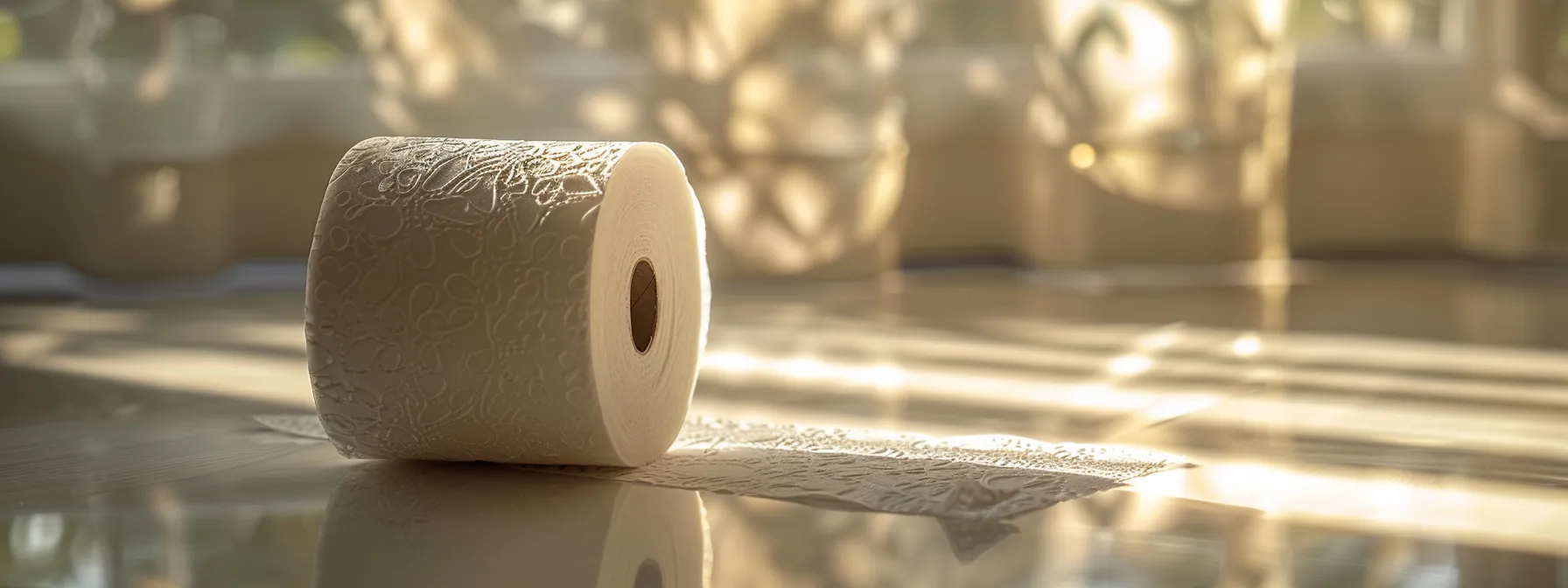
Let’s get into the nitty-gritty of recycled versus traditional toiletpaper and how each stacks up for your septic system. You’re about to find out why recycled toiletpaper might just be the unsung hero of septic safety and how it plays a part in protecting our environment.
We’ll cover the advantages of making the switch and the overall impact on your septic system’s health. So, keep your eyes peeled for some practical insights that could save you from plumbing woes and help the planet too.
Advantages of Recycled ToiletPaper
Switching to recycled toiletpaper is a smart move for your septic system’s health. It’s typically less processed and free from the additives found in traditional options, which means it breaks down more easily in your tank.
You’re not just preventing potential blockages; you’re also contributing to a healthier environment by reducing the demand for virgin pulp.
Recycled toiletpaper often comes with a softer impact on your septic system, leading to fewer maintenance calls. It’s a relief knowing that your choice supports the efficient functioning of your septic tank, while also being a friend to the forests.
By choosing recycled, you’re taking a step towards a more sustainable lifestyle, one flush at a time.
Environmental Impact and Septic Safety
Choosing recycled toiletpaper isn’t just a win for your septic system; it’s a victory for the planet too. These products often have a lower environmental footprint, as they reduce the need for new tree harvesting and the energy-intensive processes associated with it.
You’re not only keeping your septic system safe from potential blockages but also contributing to a greener world with every roll you use.
When you opt for recycled toiletpaper, you’re making a choice that benefits both your septic system and the environment.
This eco-friendly option breaks down more readily in your septic tank, minimizing the risk of maintenance issues. Here’s how making the switch can impact your septic system and the environment:
- Recycled toiletpaper supports septic tank health by dissolving quickly.
- It reduces the likelihood of blockages and the need for repairs.
- By choosing recycled, you’re helping to conserve natural resources and protect ecosystems.
How to Test ToiletPaper for Septic System Compatibility

Wondering if your favorite toiletpaper is septic-friendly? You can easily test it out with a simple dissolvability test right at home.
This hands-on approach gives you the lowdown on whether your go-to roll will break down in your septic system or if it’s a clog waiting to happen.
After the test, you’ll need to know how to interpret the results effectively to make sure you’re not unknowingly contributing to future blockages. Let’s get into how you can become a septic system sleuth and keep those maintenance issues at bay.
Simple Dissolvability Test at Home
Curious if your toiletpaper is a friend or foe to your septic system? You can play detective with a straightforward dissolvability test right in your own home.
Just grab a jar, fill it with water, and toss in a couple of squares of your toiletpaper. Give it a good shake and let it sit for an hour or so. If it breaks apart easily, you’re looking at a septic-safe superstar. If not, you might want to consider switching to a brand that’s more septic-friendly to avoid any future plumbing drama.
Now, if you’re thinking, “Do I really need to test my toiletpaper?” the answer is a resounding yes, especially if you want to keep your septic system running without a hitch. This simple test can save you from the headache of blockages and the dent in your wallet from maintenance issues.
Plus, it’s a quick way to ensure that the toiletpaper you’re using aligns with the best practices for septic system care, keeping those pipes clear and your mind at ease.
Interpreting Test Results Effectively
After you’ve given your toiletpaper the shake test, it’s time to see what’s up. If you find the paper has turned into a pile of mush, that’s great news for your septic system.
This means it’s likely to break down just as easily in your tank, keeping blockages at bay. But if the paper‘s still holding strong, you might want to consider a switch to prevent future plumbing headaches.
Now, if the results have you scratching your head, wondering if a few stubborn pieces are cause for concern, here’s the scoop. A few flakes are fine, but if you’ve got chunks of paper floating around, that’s a red flag.
You want a toiletpaper that falls apart to the point where it’s barely recognizable – that’s the kind your septic system can handle with ease, ensuring smooth sailing for your plumbing.
Common Myths About Septic-Safe ToiletPaper
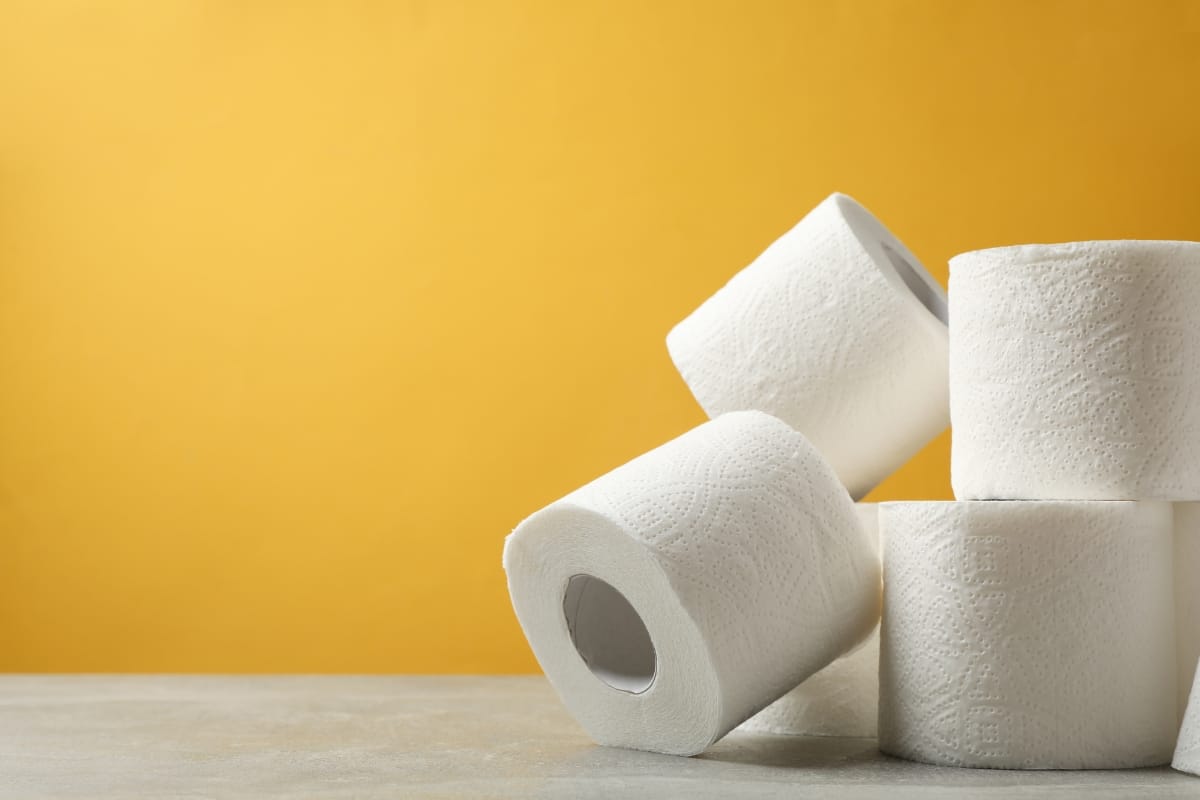
Let’s bust some myths about what’s best for your septic system, starting with the belief that thicker toiletpaper is better. Spoiler alert: it’s not.
And while you might think all toiletpaper is septic-safe, that’s another misconception we need to clear up. You’re about to get the real scoop on these common misunderstandings, ensuring you make the smartest choices for your septic system’s health and longevity.
Myth: Thicker ToiletPaper Is Better
You might think that thicker toiletpaper means a more luxurious experience, but when it comes to your septic system, it’s not the best choice.
The truth is, thicker toiletpaper takes longer to break down, which can lead to blockages and a stressed-out septic system. So, while it might feel nice, it’s not doing your plumbing any favors.
Instead of reaching for that plush roll, consider the long-term health of your septic system. Opt for thinner, septic-safe toiletpaper that dissolves more easily, ensuring your system stays clear and maintenance-free. It’s a simple switch that can save you from the hassle of unexpected plumbing issues and keep your septic system running smoothly.
Myth: All ToiletPaper Is Septic-Safe
It’s a common belief that all toiletpaper is created equal when it comes to your septic system, but that’s far from the truth. Some options might be plush and luxurious, but they can be a nightmare for your septic tank, leading to blockages and costly maintenance.
You need to be savvy about your selection, choosing toiletpaper that’s labeled as septic-safe, which means it’s designed to dissolve quickly and not disrupt the delicate balance of your septic system.
Let’s face it, dealing with a septic system mishap is something you’d rather avoid, right? Well, picking the right toiletpaper is a simple yet effective step toward that peace of mind.
Septic-safe toiletpaper is specifically made to break down faster, preventing the kind of clogs that can cause backups and overflows. So, next time you’re shopping, keep your septic system’s health in mind and reach for those septic-friendly rolls:
| Toilet Paper Type | Septic System Compatibility | Breakdown Speed |
|---|---|---|
| Septic-Safe | High Compatibility | Quick Dissolving |
| Plush and Thick | Low Compatibility | Slow Dissolving |
| Standard | Moderate Compatibility | Varies |
Tips to Prevent Blockages and Maintenance Issues
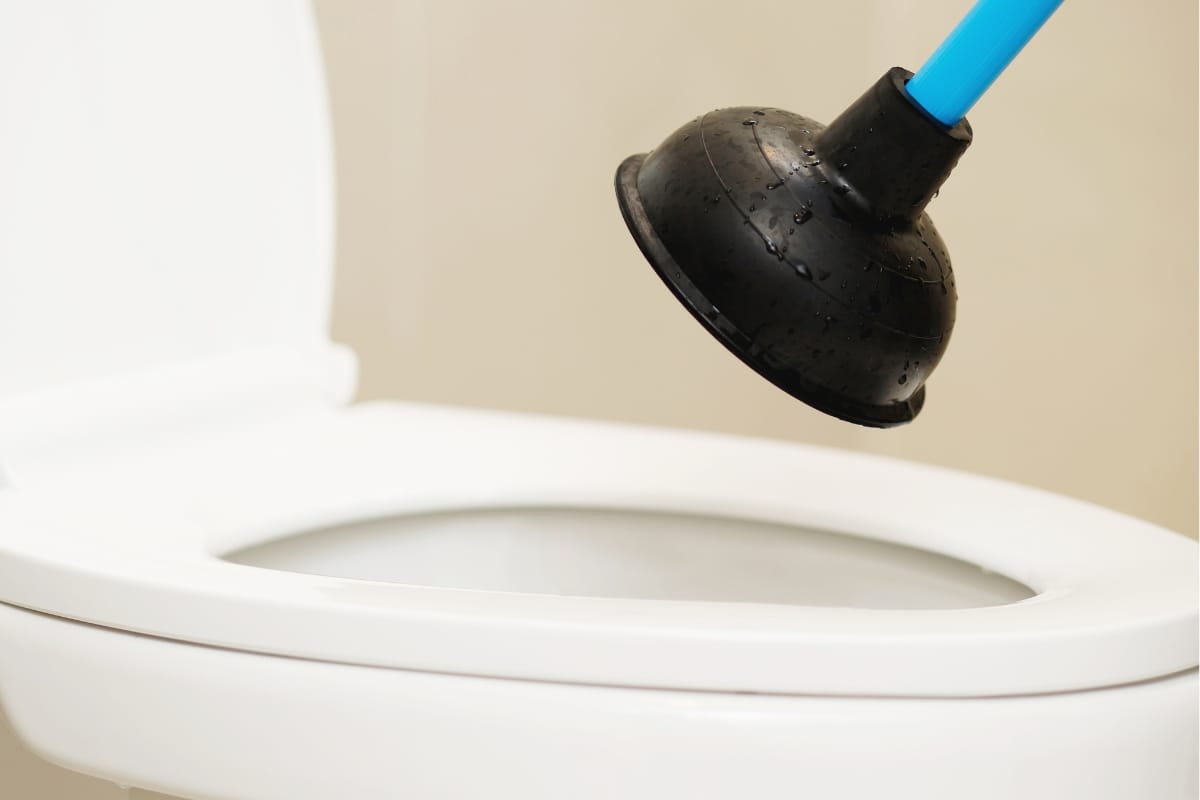
Keeping your septic system free of blockages isn’t just about choosing the right toiletpaper; it’s also about smart disposal practices and regular maintenance.
You’re about to get the lowdown on how to dodge plumbing woes with proper waste disposal and why keeping up with septic system check-ups is a game-changer.
These tips are your ticket to a hassle-free septic system, so let’s dive in and keep those pipes clear and functioning like a dream.
Proper Disposal Practices
Let’s talk about keeping your septic system in top shape with some smart disposal habits. First off, only flush the essentials – that’s your natural waste and septic-safe toiletpaper.
Even products labeled as ‘flushable’ like certain wipes or feminine hygiene products can be troublemakers in your system, leading to blockages that nobody wants to deal with. So, stick to the basics and you’ll be doing your septic system a huge favor.
Now, you might be tempted to flush down some leftovers from your bathroom trash can, but hold up. Things like cotton swabs, dental floss, and even hair can gang up on your septic system, causing a backup that’s a headache to fix.
Keep a small bin handy for these non-flushables, and you’ll sidestep those pesky plumbing issues while keeping your septic system running smoothly.
Regular Septic System Maintenance
Keeping your septic system in check is like giving your car regular oil changes; it’s essential for smooth operation. Scheduling routine inspections and pump-outs every three to five years can prevent those unexpected and often costly repairs.
It’s all about catching issues early, so you’re not caught off guard by a system failure or a backup that could have been avoided with a little TLC.
You know that sinking feeling when something’s not right with your plumbing? Regular septic maintenance is your best defense against that. Stay on top of things by keeping an eye on water usage, and be mindful of what goes down your drains.
This proactive approach not only extends the life of your septic system but also keeps your yard and home free from the mess and stress of septic woes.
Frequently Asked Questions About Septic-Safe ToiletPaper
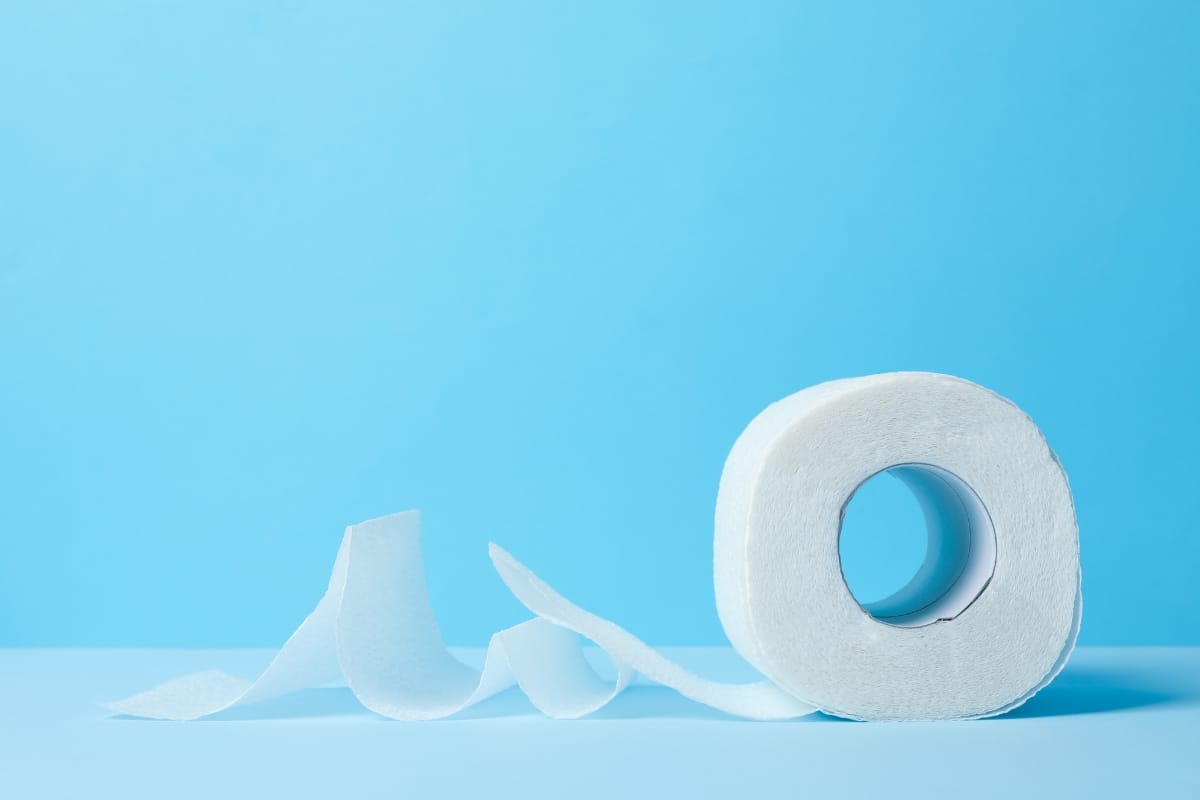
Got questions about what’s best for your septic system? You’re not alone. Let’s tackle two big ones: whether those “flushable” wipes are truly septic-friendly and if bambootoiletpaper is a safe bet for your tank. These FAQs are packed with the insights you need to keep your septic system free from blockages and running smoothly.
Can I Use Flushable Wipes With Septic Systems?
So, you’re eyeing those “flushable” wipes on the store shelf, wondering if they’re safe for your septic system. Here’s the straight talk: despite the label, many of these wipes don’t break down as readily as septic-safe toiletpaper and can lead to blockages in your system.
It’s better to play it safe and stick with toiletpaper that’s proven to be septic-friendly, keeping your system running without any hiccups.
Think about it, you don’t want to be the one dealing with a messy, backed-up septic system because of a wipe that just wouldn’t dissolve. Even if they claim to be flushable, these wipes can accumulate and create a bottleneck in your pipes.
Your best bet is to avoid them altogether and keep your septic system clear, saving you the stress and expense of unexpected repairs.
Is BambooToiletPaper Safe for Septic Tanks?
Wondering if bambootoiletpaper is a good match for your septic system? You’re in luck because bambootoiletpaper is known for its septic-safe qualities. It’s a sustainable choice that breaks down quickly, reducing the risk of clogs and keeping your septic system running smoothly.
Plus, it’s a gentle option for both your plumbing and the environment, making it a smart pick for your household.
Let’s get into the specifics: bamboo fibers are naturally strong yet highly biodegradable, which means they won’t linger in your septic tank and cause trouble.
You can feel confident using bambootoiletpaper, knowing it’s designed to dissolve efficiently and not contribute to blockages. Here’s a quick comparison to show you how bamboo stacks up against other types of toiletpaper:
| Type of Toilet Paper | Septic System Safety | Biodegradability |
|---|---|---|
| Bamboo Toilet Paper | Excellent | High |
| Traditional Toilet Paper | Good | Moderate |
| Plush, Multi-Ply Toilet Paper | Poor | Low |
Signs Your ToiletPaper Is Causing Septic Problems
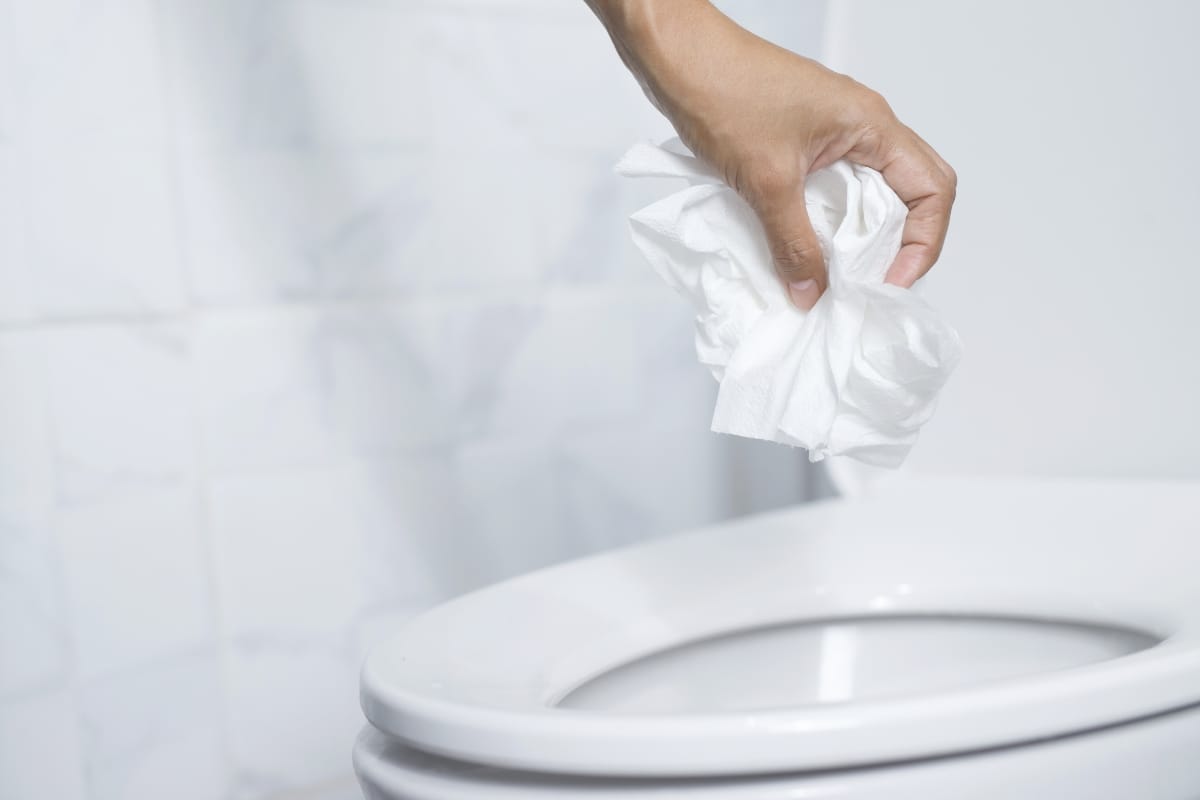
Ever noticed your sinks taking their sweet time to drain or a funky smell lingering around your yard? These could be telltale signs that your toiletpaper isn’t septic-friendly.
In the upcoming sections, we’ll delve into how slow draining fixtures and unusual odors can signal issues with your septic system, potentially caused by the wrong toiletpaper choice. Stick with us to uncover practical tips for identifying and resolving these common septic concerns.
Slow Draining Fixtures
If you’re noticing that your sinks and showers are draining slower than a snail on a leisurely stroll, it might be a sign that your toiletpaper isn’t breaking down properly in your septic system.
This can lead to a buildup in your pipes, causing water to back up and drain at a painfully slow rate. It’s a clear signal that it’s time to reassess your toiletpaper choice and switch to a septic-safe option that dissolves more efficiently.
When your toilet gurgles or takes multiple flushes to clear, it’s not just an annoyance; it’s a cry for help from your septic system. These symptoms often point to a blockage further down the line, potentially caused by thick, plush toiletpaper that’s clogging up the works.
Opting for a thinner, quick-dissolving toiletpaper can make a world of difference, allowing your system to process waste without a hitch:
| Issue | Possible Cause | Solution |
|---|---|---|
| Slow Draining Sinks/Showers | Buildup from non-septic-safe toilet paper | Switch to septic-safe toilet paper |
| Multiple Flushes Needed | Blockage from thick toilet paper | Choose thinner, quick-dissolving options |
| Gurgling Toilets | Restricted flow due to clogs | Use septic-friendly, biodegradable toilet paper |
Unusual Odors Around the Property
If you’re catching a whiff of something foul in your yard, it could be a red flag that your septic system is unhappy, possibly due to the toiletpaper you’re using.
Non-septic-safe options can create blockages that lead to the escape of unpleasant odors, signaling it’s time to switch to a toiletpaper that dissolves more readily and keeps your septic system odor-free.
Those unexpected, musty smells coming from your drains inside could also be a clue that your septic system is struggling to break down thick, luxurious toiletpaper.
By choosing septic-safe toiletpaper, you’re taking a step towards eliminating these odors and maintaining a fresh and welcoming home environment:
| Odor Source | Potential Cause | Recommended Action |
|---|---|---|
| Yard | Septic system blockages from non-dissolving toilet paper | Switch to quick-dissolving, septic-safe toilet paper |
| Indoor Drains | Buildup in pipes due to thick toilet paper | Opt for thinner, septic-friendly toilet paper options |
Frequently Asked Questions
What makes toiletpaper septic-safe?
Septic-safe toiletpaper dissolves quickly, preventing clogs and maintaining your system’s balance by not overloading the tank with undegradable material.
Can recycled toiletpaper harm my septic system?
Recycled toiletpaper is generally septic-safe, breaking down easily and less likely to cause clogs or damage to your system.
How do I test toiletpaper for septic compatibility?
To test if toiletpaper is septic-safe, perform a simple breakdown test: Submerge a few sheets in water, stir gently, and observe if they dissolve quickly, indicating they’re suitable for your septic system.
What are signs of septic issues from wrong toiletpaper?
If you’re noticing frequent clogs, slow drains, or an unpleasant odor, these could be signs that your septic system is struggling with the toiletpaper you’re using.
How often should I pump my septic tank?
Pump your septic tank every 3-5 years, depending on usage and household size, to prevent backups and maintain system health.
Conclusion
Choosing the right toilet paper for your septic tank is a small step that can make a big difference in avoiding clogs and costly repairs. Opting for septic-safe options ensures the longevity of your system and keeps it functioning efficiently.
For expert advice and reliable septic services, trust Smart Septic Pros to help you maintain a healthy system. Call us today at 678-993-4545 or visit our website to schedule your service with us. Let us handle your septic needs with care and expertise!
